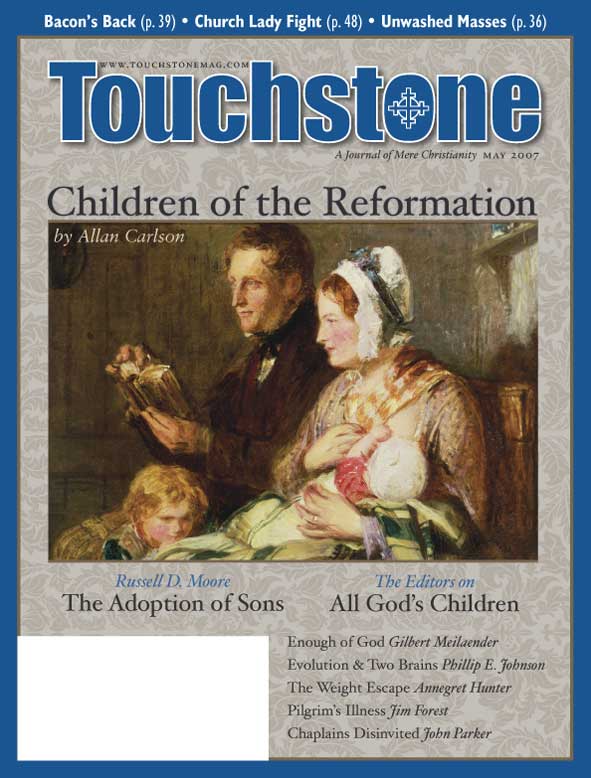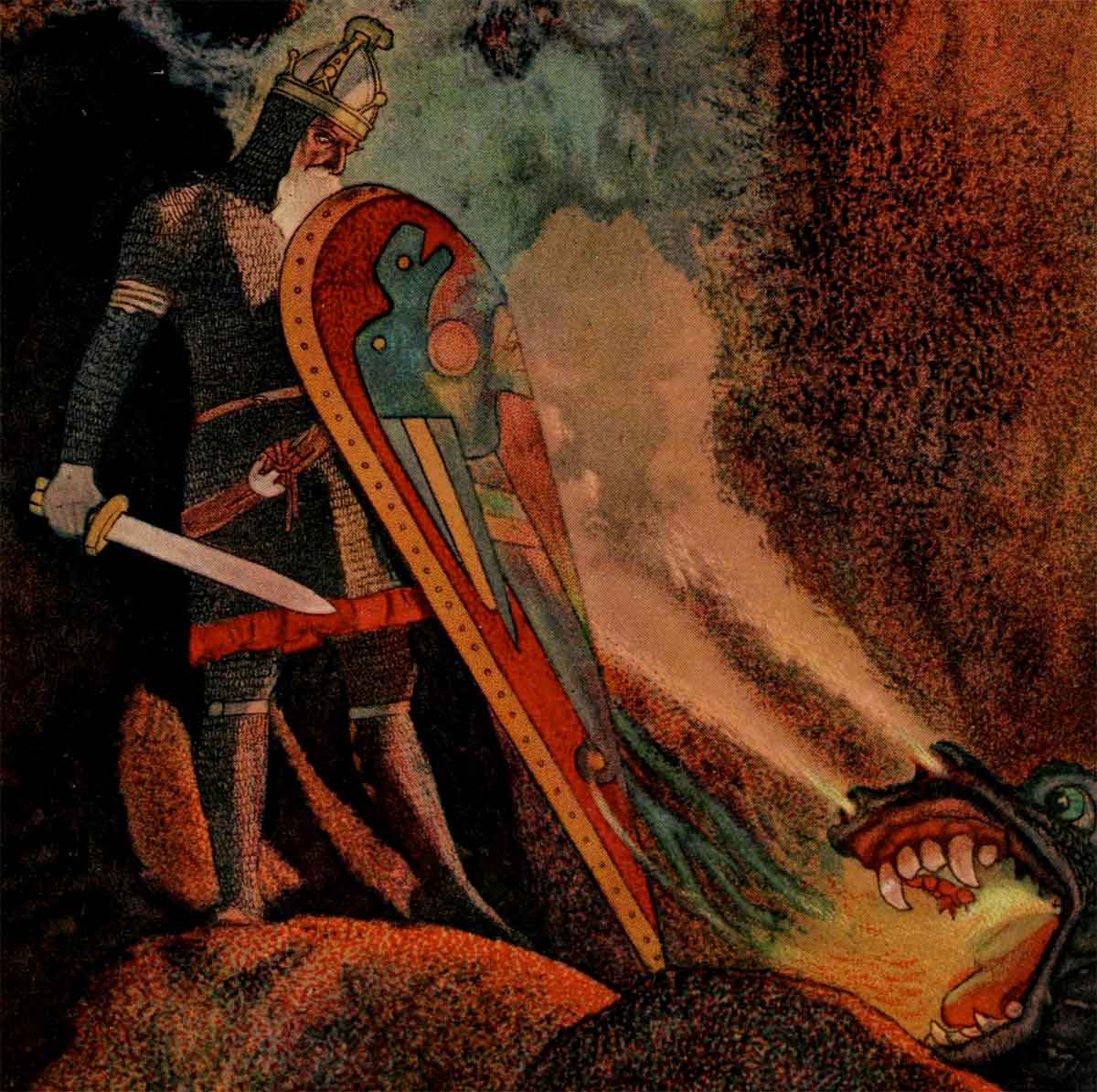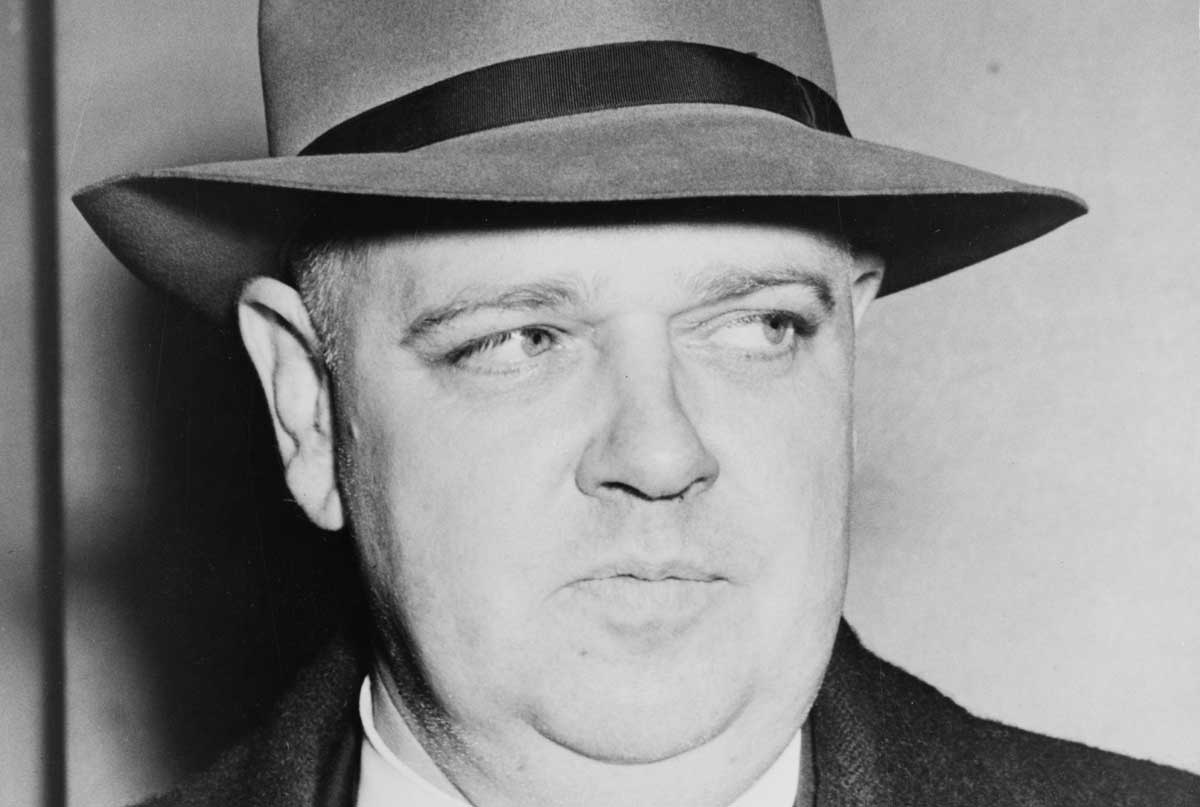Bacon’s Back
The Religious Foundation of Francis Bacon's Thought
by Stephen A. McKnight
Eric Voegelin Institute Series in Political
Philosophy: Studies in Religion and Politics
University of Missouri Press, 2005
(193 pages, $37.50, hardcover)
reviewed by Peter J. Leithart
Francis Bacon is on nearly everyone’s short list of “makers of the modern world.” Though he formulated no important scientific theories, dismissed the importance of mathematics for scientific investigation, and didn’t even propose the kind of method that scientists actually follow, he has for centuries been hailed as the “father of modern science.”
His claim to this title is now debunked by historians, but the debunking can go too far. His program of publicly funded collaborative science, aiming at the betterment, if not the salvation, of mankind, helped determine the social role of science and technology, the image and self-image of the scientist as a systematic thinker, and the notion that learning is less contemplation than hunt, exploration, and discovery.
Bacon is also often claimed as an apostle of secularism. Though his religious language is too pervasive to ignore, many interpreters believe that Bacon manipulated religious symbols to make his radical ideas palatable to an England awash in sometimes-fanatical religion (he died in 1626). Religious rhetoric is the dispensable husk around the nutritious scientific kernel.
Bacon’s Kernel
In this book, Stephen A. McKnight, Emeritus Professor of European Intellectual and Cultural History at the University of Florida, takes issue with secular interpretations of Bacon. Through a close reading of Bacon’s major works, he demonstrates that his entire program was motivated by and suffused with religious aims and inspirations.
Religion is the kernel. Not Bacon per se but “Baconianism” is what really affected the development of Western science, and Baconianism, when it was not based on an outright misreading, was often based on a very selective reading of Bacon, sometimes reduced to little more than a section of his late work, the New Organan.
Bacon understood scientific investigation as part of the story of creation, fall, and redemption. Through his sin, Adam lost not only his moral innocence but also his capacity to rule the earth. Innocence, Bacon claimed, is restored through faith and revelation, Adamic dominion and knowledge through science and the arts.
For Bacon, faith and science work in tandem. Man achieves mastery of nature only through spiritual purification. He does not pursue dominion as an end in itself, but is motivated by charity, by a desire to improve human life through invention.
At the center of Bacon’s thought is the notion of “instauration” or “rebuilding,” described in New Organan, which he took from the Latin Vulgate, where the word describes the renovation of the temple by Josiah. Thought had become disordered and sterile due to man’s worship of various idols of the mind, and Bacon saw himself embarked on the task of rebuilding a dilapidated house of learning.
Instauration has two dimensions. It reaches back into the past to recover what was lost. For Bacon, Western history is a river that brings to the surface only the frothiest of ancient thinkers: Plato and Aristotle. Truly weighty, pre-Socratic, ways of thinking had sunk to the bottom, and he dredged up this “ prisca theologia” or “ancient wisdom,” which focused not only on moral and political philosophy but also on natural philosophy.
On the other hand, his program of instauration offered something new, and his confidence in his program arose in large measure from millenarian beliefs. He viewed King James I as a new Solomon, who had brought the political conditions necessary for a total transformation of the human condition. Columbus’s discovery of the Americas was another sign of the times, and inspired Bacon to look for the fulfillment of Daniel 12:4, which prophesies that exploration and increase of knowledge will move forward together.
Misread Bacon
McKnight’s argument is compelling, and his book is a fine contribution to our understanding of this complex man and his even more complex legacy. It is one of the strengths of the book that it left me with as many questions as conclusions. What if Bacon’s religious foundations had been taken seriously? How would science be different today if it had been understood over the centuries as a restoration of Adamic dominion, or a rebuilding of Solomon’s House?
Even if Bacon was sincere in his religious beliefs, interpreters of Bacon quickly unmoored his views on science, logic, and learning from that dock. That “reception history” is a tale worth telling, and perhaps McKnight will take it up in the future.
That raises a further set of questions: If the religious themes are as pervasive as McKnight indicates, how did Bacon come to be so badly misread? Did Bacon leave himself vulnerable to a secularizing reading? If the stream is corrupt, what are we to say of the spring?
To say that Bacon was religiously motivated is not to say he was right. Perhaps he was sincere, but sincerely heretical. McKnight’s book does not attempt to evaluate Bacon at this level, but this issue would be crucial to a full Christian assessment of his contributions to modern culture, and, in turn, of the modern culture to which he contributed so much.
Peter J. Leithart is an ordained minister in the Presbyterian Church in America and the president of Trinity House Institute for Biblical, Liturgical & Cultural Studies in Birmingham, Alabama. His many books include Defending Constantine (InterVarsity), Between Babel and Beast (Cascade), and, most recently, Gratitude: An Intellectual History (Baylor University Press). His weblog can be found at www.leithart.com. He is a contributing editor of Touchstone.
subscription options
Order
Print/Online Subscription

Get six issues (one year) of Touchstone PLUS full online access including pdf downloads for only $39.95. That's only $3.34 per month!
Order
Online Only
Subscription

Get a one-year full-access subscription to the Touchstone online archives for only $19.95. That's only $1.66 per month!
bulk subscriptions
Order Touchstone subscriptions in bulk and save $10 per sub! Each subscription includes 6 issues of Touchstone plus full online access to touchstonemag.com—including archives, videos, and pdf downloads of recent issues for only $29.95 each! Great for churches or study groups.
Transactions will be processed on a secure server.
more from the online archives
calling all readers
Please Donate
"There are magazines worth reading but few worth saving . . . Touchstone is just such a magazine."
—Alice von Hildebrand
"Here we do not concede one square millimeter of territory to falsehood, folly, contemporary sentimentality, or fashion. We speak the truth, and let God be our judge. . . . Touchstone is the one committedly Christian conservative journal."
—Anthony Esolen, Touchstone senior editor









